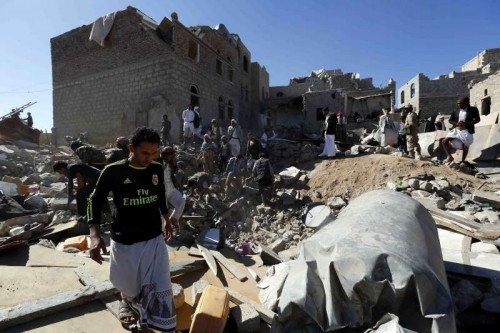
Saudi Arabia offered the Shiite Houthi rebels a five-day truce in Yemen starting from next Tuesday, according to Saudi Foreign Minister Adel al-Jobeir.
The cease-fire will allow the entry of aid in the country and can be renewed if Houthis commit to stop their violent mobilisation of troops and weapons.
In a press conference held on Friday in Paris where meetings between US Secretary of State John Kerry and the foreign ministers of the Gulf Cooperation Council were held, al-Jobeir said that the success of this proposal is “entirely in the hands of Houthis and their allies”, including Yemeni former president Ali Abdullah Saleh.
For his part, Kerry said “some indications” were received that the offer could be accepted, although there was no certainty.
In any case, Kerry recalled that a “cease-fire is not a substitute for peace” and that peace can only be achieved through a political solution involving all parties, under the auspices of the United Nations.
Anyone concerned about the welfare of the Yemeni people needs to recognise that the country is on the brink of a major humanitarian disaster, Kerry said, urging Houthis at the same time to seize the opportunity to end the violence.
Nevertheless, the head Saudi diplomat made it clear that the last thing Saudi Arabia would allow is a militia loyal to Iran and Hezbollah on its borders.
“That’s not going to happen,” al-Jobeir assured.
Since March 26, the Saudi-led Arab coalition has been bombing positions of the Shiite Houthi rebels, who forced President Abd Rabbu Mansour Hadi out of the country in February.